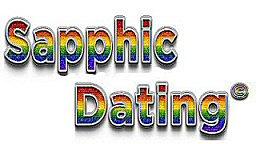If you are new to lesbian dating, it can feel like entering a whole new world. How do you meet someone who excites you? How do you draw clear lines between friends and lovers? Are there different kinds of lesbians and what kind of lesbian should I date? These are all common questions when it comes to lesbian dating.
But before you even get to this stage of your adult life, there’s plenty to consider well before then.
Non-straight people may identify themselves in a myriad of ways. While terminology for many identities can differ over time and across communities, the following definitions are a good starting point.
Sexual orientation: Term used to describe one’s overall inherent or immutable enduring emotional, romantic or sexual attractions to other people. Essentially, it is who you are ‘oriented’ towards. Note: an individual’s sexual orientation is independent of their gender identity.
Sexual identity: The label one uses for their sexual orientation. Essentially, it is the term you use to indicate your sexual orientation, to yourself and to the world. While most people who use a specific sexual identity (e.g., lesbian) use it to refer to a specific sexual orientation (e.g., a woman who is attracted to other women), others may use different identity labels to describe that same sexual orientation—and others still may use the same identity label to convey different sexual orientations.
Lesbian: A woman who is emotionally, romantically or sexually attracted to other women. Many lesbian women are also sexually and romantically attracted to trans women. Women and non-binary people may use this term to describe themselves.
Gay: A person who is emotionally, romantically or sexually attracted to members of the same gender. Many gay men are sexually and romantically attracted to trans men, and many gay women are sexually and romantically attracted to trans women. Men, women and non-binary people may use this term to describe themselves.
Bisexual: A person emotionally, romantically or sexually attracted to more than one sex, gender or gender identity, though not necessarily simultaneously, in the same way or to the same degree. This is sometimes written as bisexual+ or bi+ to incorporate many non-monosexual identities, such as pansexual, omnisexual, or fluid. Bisexuals make up the majority of the LGBTQ+ population – according to a 2021 Gallup poll, over half (56.8%) of all LGBTQ+ adults in the United States identified as bisexual.
Queer: Queer has many meanings. For some people, “queer” is a general catch-all/umbrella term, used as a shorthand to capture all non-heterosexual sexual identities, and/or non-cisgender gender identities.
For other people, queer may reflect their sexual orientation, leading them to identify as queer as opposed to lesbian, or bisexual, or something else; for them, queer often reflects those who are attracted to/partner with people who are transgender, non-binary, or gender-expansive. Still others may use queer to define themselves as a reflection of their own non-binary or gender-expansive identities. This term was previously used as a slur, but has been reclaimed by many parts of the LGBTQ+ movement. Like all identities, you should only refer to someone as queer when they have let you know they identify that way.
Monosexual: Describes someone who has the potential for emotional, romantic or sexual attraction to people of only one gender.
Pansexual: Describes someone who has the potential for emotional, romantic or sexual attraction to people of any gender, though not necessarily simultaneously, in the same way or to the same degree. Sometimes used interchangeably with omnisexual, queer, bisexual.
Fluid: A term people often use to describe their sexual orientation if their orientation changes with time, or if their orientation has the potential to change with time.
Keep in mind that even if one label (or more than one label) speaks to you, you are not stuck with that label forever. As humans, we learn about ourselves and grow throughout our entire lives, and we may later find that a certain label doesn’t fit us as well as it once did. It is ok if one day you wake up and realize that you’re not exactly who you thought you were.
Know that you, and only you, are in charge of your own identity, and you alone have the freedom to define yourself.
This category of our platform is just the start to a world much larger than ourselves. We hope you can find what you are searching for in love and life! Suggestions for additional content are more than welcomed and will be reviewed upon submission to our team.
